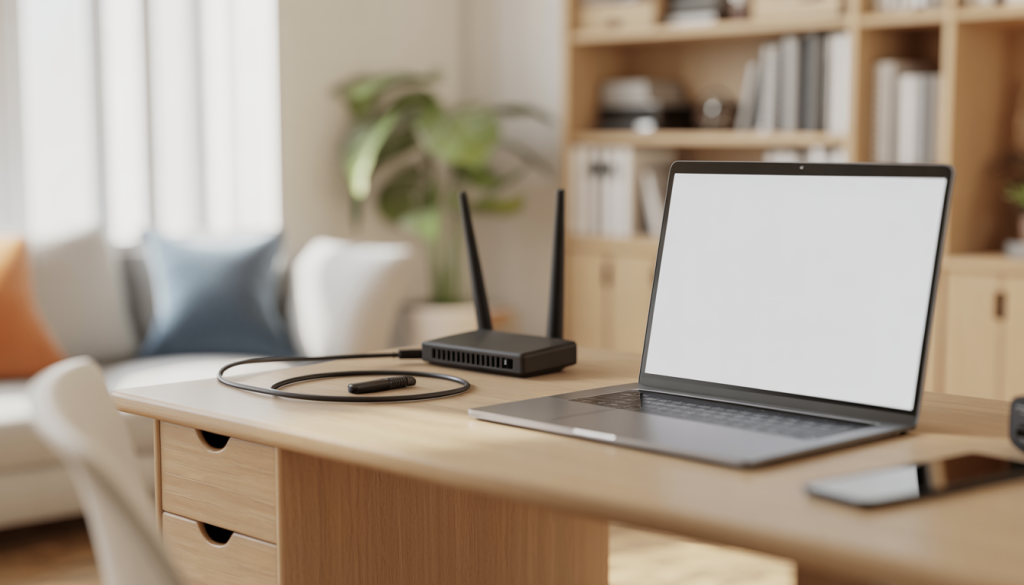
Having a reliable internet connection is crucial for optimal PC performance. Whether you’re streaming, working remotely, or just browsing, a stable and fast connection ensures a seamless online experience. Regularly testing your internet speed helps verify that you’re receiving the service you pay for and can highlight any issues affecting your connectivity.
At iolo, we’re committed to optimizing both PC and internet performance with our award-winning tools, including System Mechanic®. This tool not only enhances your PC’s processing power but also boosts internet speed, ensuring an efficient computing experience. Let’s explore why testing your internet speed is essential and how it benefits your daily activities.
Why Test Your Internet Speed?
Regular internet speed tests are key to maintaining efficient connectivity. Here’s why.
- Identify issues: Speed tests can uncover problems like slow speeds or interruptions, allowing for quick fixes.
- Ensure value: Confirm you’re getting the bandwidth you’re paying for from your internet service provider.
- Optimize performance: Understanding your speed helps to optimize network settings for better performance. For improvement tips, visit 5 Ways to Improve Internet Speed on a Windows Computer.
With the rise of remote work, a reliable internet connection has become more important than ever. Regular speed tests ensure your connection supports all your online tasks, from virtual meetings to cloud collaboration.
Understanding Speed Test Internet Speed
A speed test measures these key components of your internet connection.
- Download speed: Indicates how fast data is transferred to your device. Faster speeds mean quicker loading and smoother streaming.
- Upload speed: Shows how fast data is sent from your device. Vital for video calls and cloud uploads.
- Ping: Measures response time. Lower ping ensures more responsive online activities, crucial for gaming and video calls.
Regular speed tests ensure your internet service meets your needs for smooth online interactions.
How to Test Your Internet Speed
Checking your network speed is simple and can enhance your internet connection. Follow these steps:
- Select a reliable speed test tool: Use a well-known tool like Ookla’s Speedtest or your ISP’s test tool.
- Close unnecessary applications: Shut down apps or tabs that might use the internet to ensure accurate results.
- Connect directly: For best results, connect directly to your modem or router using an Ethernet cable.
- Run the test: Click ‘Go’ or ‘Start’ on the tool to begin. It will measure download, upload speeds, and ping.
- Analyze the results: Compare with your internet plan to ensure you’re receiving expected speeds. For more insights, read about Speed Performance: How Fast is My Computer.
Test My Upload Speed: Why It Matters
Understanding upload speed is crucial for smooth online activities. Here’s why it matters.
- Video conferencing: Ensures clear video and audio quality, reducing lag.
- Cloud storage: Faster uploads mean less waiting time.
- Online gaming: Good upload speeds ensure quick response times.
- Content creation: A fast upload speed reduces time to upload videos to platforms like YouTube.
Regularly testing your upload speed helps ensure your internet supports your daily tasks effectively.
What is a Good Upload Speed?
Knowing what constitutes a good upload speed is vital for smooth online activities. Here’s a quick guide.
- Video Conferencing: At least 1 Mbps for clear video calls.
- Cloud Storage: Minimum of 5 Mbps for efficient uploads.
- Online Gaming: Aim for 1-3 Mbps for low latency.
Generally, an upload speed of 5 Mbps or higher is good for most users. Regularly testing helps you stay informed about your internet performance. For a comprehensive PC optimization experience, consider iolo’s System Mechanic®, designed to enhance both processing power and internet performance.
Bandwidth vs Speed: What You Need to Know
It’s important to understand the difference between bandwidth and speed:
- Bandwidth: The maximum data that can be transmitted, like the width of a highway
- Speed: How fast data travels to and from your device
Understanding both helps make informed decisions about your internet service, ensuring you have the right setup for your needs. For more tips, visit Tailor Your Internet Settings for a Boost in Browsing Speed.
Using a WiFi Tester for Accurate Results
A WiFi tester can test your network speed and help optimize your wireless connection. Here’s how.
- Identify dead zones: Locate weak signal areas to improve coverage
- Measure signal strength: Gain insights into where improvements are needed
- Analyze network traffic: Identify bandwidth-heavy devices for fair speed distribution
- Optimize channel selection: Minimize interference by choosing the best channel
Choose a user-friendly WiFi tester compatible with your network setup for best results.
Next Steps
Once you’ve speed-tested your internet speed (including download speed, upload speed, and ping) and tested your network speed with a wifi tester, you’ll have the data you need to make any necessary changes or optimizations. For example:
- Talk to your ISP (internet service provider): if you feel that your speed tests reveal you’re not getting the speeds you’re paying for, you might want to discuss this with your ISP.
- Upgrade: If you’re getting the speeds appropriate to your service tier but you’re still not satisfied, you may want to select a higher speed tier of service.
On your PC, you’ll also want to ensure that you’ve optimized all your settings for the fastest possible internet and network speeds. System Mechanic’s NetBooster feature does this automatically when you run the software, configuring your Windows settings to boost your connections. Learn more about System Mechanic® and its other optimization features today.








